Success Stories - Cabo Verde
- Cabo Verde
- Resources
- Success Stories
The managing partner Simone Duarte has a cradle wrapped around the sea and fishing, since for several generations family members earn their living in the daily fishing, among shipowners, fishermen and fishmongers. At one point, she felt the need to help her mother as a fishmonger in the business for over twenty years, realizing the niche of the market and the potential of the business, saw the opportunity to undertake, bringing the new concept of professionalism and leveraging the family business.
Sea Businesswoman
The managing partner Simone Duarte has a cradle wrapped around the sea and fishing, since for several generations family members earn their living in the daily fishing, among shipowners, fishermen and fishmongers. At one point, she felt the need to help her mother as a fishmonger in the business for over twenty years, realizing the niche of the market and the potential of the business, saw the opportunity to undertake, bringing the new concept of professionalism and leveraging the family business.
Mission
Provide high quality national fish in Cape Verde and ensure continuous distribution regardless of seasonality.
eyesight
Being a company recognized for its performance excellence, committed to the quality of life of the population, distributing natural and national products from abundant resources in the Cape Verde seas and always keeping the quality of our products at the forefront.
Values
Have customer preference;
It is only worth selling if quality counts, customer safety first;
What is ours is good, we will leverage the national economy using these resources, always safeguarding environmental and social sustainability.
Our conduct should reflect the highest standards of trust, respect, simplicity and mutual commitment between the company, customer, suppliers and society.
Corporate Responsibilities
Economic: focus on the national market, we distribute national product, acquired to fifty small boats in São Nicolau, create jobs and contribute to the country's economy.
Environmental: The sustainability of the ecosystem is a priority. We are committed to respecting the periods of species that are closed. We work to add value to less consumed species in order to increase their demand, helping to balance the ecosystem.
Social: Our suppliers are fishermen, a layer characterized by the atypical “earn and spend” lifestyle, lacking training and awareness regarding household income management, safety and health. We are committed to sensitizing them to better manage their income and to have a health and safety insurance plan.
The difficulties
This branch of activity is fickle
1- Insularity of the country hinders fish distribution, poor maritime connection
2-seasonality of fish, hour abundance, hour total scarcity.
3- Mismatch of cash in payment and receipt
We believe there are solutions to ensure the continuous distribution of fish, respecting environmental sustainability, and the protected periods of protected species.
That's why we outline strategies and projects that aim to boost our business volume, a brand with personality, contributing to our community and national economy.
Strategy
We are currently in the process of building a 15m long vessel with capacity for 22T of fish, which guarantees the logistics.
At the same time, we are preparing a project that will solve the seasonality of fish, with the installation of a factory for processing fish.
ZULEIKA LEVY, AGRICULTURAL AGRONOMIST, FORMER TECHNICIAN AT THE MINISTRY OF AGRICULTURE AND ENTREPRENEUR FOR MORE THAN FIFTEEN YEARS, IS OWNER OF THE COMPANY FLOR DE LAKAKAN. ACCORDING TO SHE, ANTICIPATING MARKET NEEDS, ALWAYS IMPROVING PRODUCTION AND BETTING ON QUALITY ARE THE RECIPES FOR SUCCESS.
GREEN BUSINESS
Lakakan Flower started as a joint venture with Santiago Golfe Resort. In March 2002, it was the culmination of a dream of businesswoman Zuleika Levy and her husband. They were already working with plants in a playful way, mainly making gifts that they gave to their friends at parties. They then realized that the bids had been successful and concluded that there could be a future in this field.
The first Cape Verdean company dedicated to ornamental plants, its creation was not easy, especially because of the difficulty of convincing people that it was a company. “People used to swap plants and not buy,” Zuleika Levy said in an interview with online newspaper Expresso das Ilhas, “and the garden was not a priority, the Caps -Verdiens having always fought first and foremost for their survival, that is to say: food, health, education”.
The garden was considered a luxury item, reserved for the wealthy. So the beginning was a struggle; first, convincing the people who had come into the market to stay, and second, convincing the big construction companies of the need for green, “because gardening and landscaping have always been the poor relation of buildings. You did everything and only then did you think about gardens and the environment. In this way, we are gradually entering the market”, summarizes the businesswoman.
A second challenge was more practical - the lack of water and the price of water in Cape Verde. Thus, the company is betting on another type of garden, composed of cacti and succulents, requiring little water, using the raw material that exists in Cape Verde, the volcanic rush. quotAnd we were showing people that it was possible and that cacti also give flowers and beautify gardens.quot
Step by step, the company began to enter the market. Gradually, people got into the habit of buying plants. They then decided to explore new frontiers and competed in major hotel markets. “Everything was different,” recalls Zuleika Levy, “because the plants already had to be grown in the hotel, so they didn't have time to grow. We had to adapt quickly to the market. quot
They adapted and were able to enter this market. The Riu Funana hotel in Sal had all the plants provided by Lakakan Flower. In Boa Vista, for the Iberostar group, the company has not only supplied the plants, but has already planted them. But all was not easy. Zuleika Levy felt on the skin one of the problems that most entrepreneurs point out in the archipelago: the lack of means of transport.
“To bring the plants to Sal, I had to hire a boat to transport them. I had signed a contract under which I promised to have all the factories on site on a given day and that I had to comply with the contractor, otherwise the credibility of the company would suffer”.
But all is not literally rosy. The crisis left its mark, mainly because it affected the largest customers. “There is not so much hotel construction, nor in general. But, on the other hand, the Cape Verdeans started to realize the need to build their houses with gardens and they started calling us”.

INNOVATE AGAINST THE CRISIS
One of the secrets is to be ahead of the market. Lakakan Flower started with plant production, then landscape, green space and drip irrigation projects, expanded to other islands and then started producing fruit trees. In 2011, Zuleika Levy and her husband bought the part of the business that still belonged to Santiago Golfe Resort, looked for another place to set up the nursery and acquired land in Trindade. “The market being small, we have to innovate. And with or without a seizure, people have to eat and start
care about health”, so even the production of hydroponic vegetables has been a leap forward.
“I like to research, test, repeat, explains Zuleika Levy. I started producing plants in milk containers or recycling yoghurt pots. Little by little, we used greenhouses, the first came from Portugal, the others we had already assembled, with local material. We opted for drip irrigation to minimize water waste. In Israel, I discovered new techniques to cool plants with simple things and using what we have here. Today we have taken another step forward with hydroponics, which is not new elsewhere but here, to produce vegetables and flowers without soil. We will have more production, more quality and we want to return to the hotel markets”.
For this, partnerships with other producers have been studied, because in addition to quality, the large hotel chains require quantity and continuity, “and this is the problem, to ensure a constant flow of production. For this we need guaranteed transport. quot
Transportation and more. As the businesswoman pointed out, in Cape Verde the economic environment is not favorable, taxes are numerous, bureaucracy is exaggerated, finances do not have an educational role, access to credit is complicated, especially in an area considered risky. farming. Another tip is to not give up. “I want to show that agriculture cannot be the poor relation in the development of our country. Most farmers don't go to school, but now there are technicians who say that it is worth investing in agriculture and I think the mindset will change because we will show that it is worth investing in agriculture with modern methods and technologies. Because we are no longer just farmers, we are also managers, marketers, meteorologists, we have to do it all. quot
And it is to attract more customers that Flor de Lakakan has opened a store in the Praia shopping center. “It's the face of the business. People will see the company and remember that we exist. In addition, we show the catalog with the services we offer”.

The company created today has its own production of flowers and to supply the domestic market.
The company works with tropical flowers imported from Sao Tome and Principe. They do not plant them because they need a lot of moisture, so other types of flowers bet: daisies, carnations, gerberas, more suitable for the Cape Verdean climate.
Links
In 2012, Helga Ortet was a college student who, out of necessity, started selling party tickets in order to earn income and subsidize part of her education.
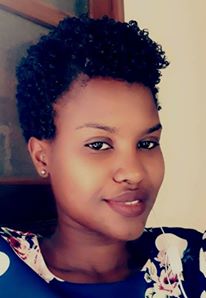
Over time, to better understand how the events industry works and see how it has evolved, Helga has become a ticket sales promoter recognized by most of Capital's event producers and has created a sales team where The profits were made through commissions.
After finishing her marketing studies, Helga, already with a consolidated sales activity, in 2015 saw the gap in the national entertainment market and announced, in a newspaper, the creation of a mobile game developed by Bonako realized that one of the staff was a long time friend of his and with his help pitched his business idea seeking a partnership to create a digital platform management and sale of national event tickets, called by Passafree.
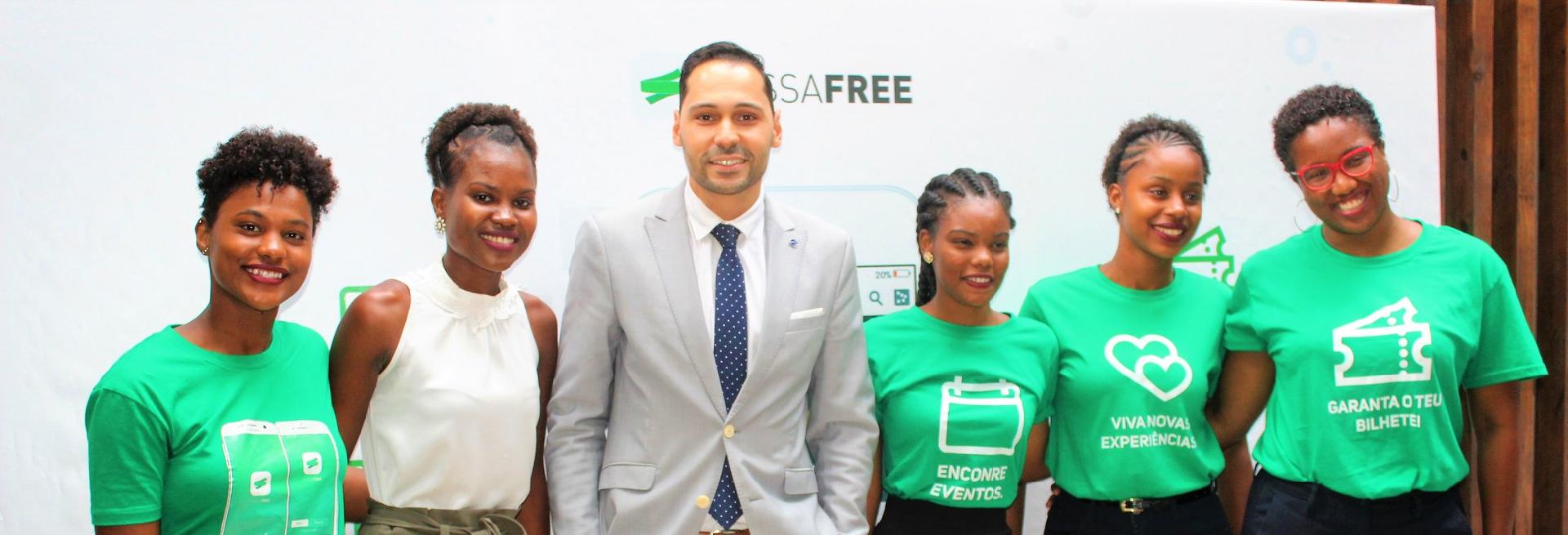 With the Secretary of State for Innovation Mr. Pedro Lopes
With the Secretary of State for Innovation Mr. Pedro Lopes
Passafree Company
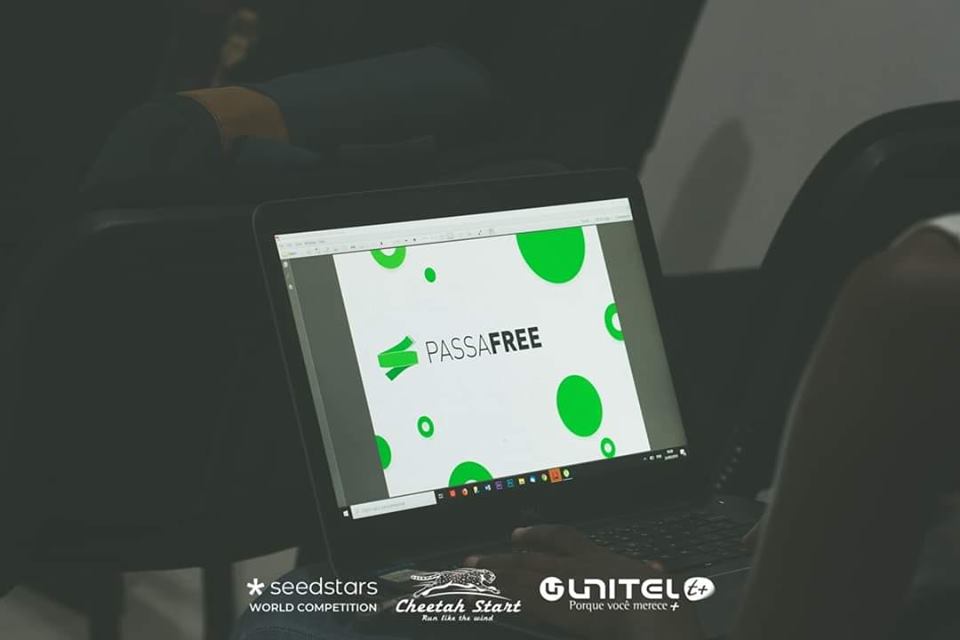
Officially created in 2015, Passafree is a company that provides services to event organizers in Cape Verde, with the aim of presenting effective solutions for the management and control of all types of national events: concerts, workshops, films , sporting events, among others. others
The company provides services in the areas of marketing, event consulting and planning, ticket management and an online event management and control platform - Passafree.
Today, the company has reached a national dimension and the next step is internationalization. Helga is convinced that the African continent is the best market to develop her activities.
The platform has a website allowing event producers to manage and control their events and a mobile application allowing the public to buy event tickets in real time.
Links
Video
MODÈLE DE RÉUSSITE - LÚCIA CARDOSO
FEMMES QUI INSPIRENT - BADIA COSMETICS
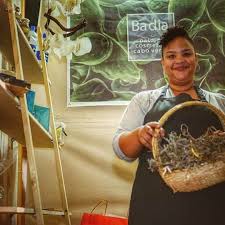
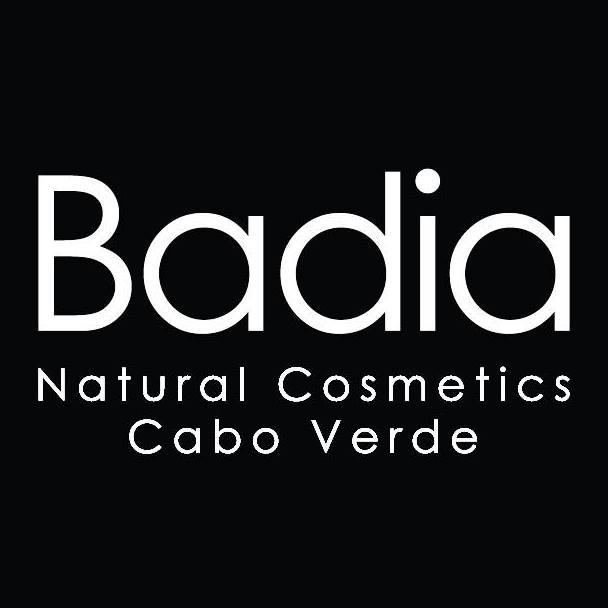
Lúcia Cardoso est une artiste, militante, femme d'affaires et mentor du projet Badia Natural Cosmetics, une marque de produits naturels fabriquée à la main dont la mission sociale est d'éduquer les femmes et de les aider à créer leurs propres coopératives et marques afin de produire savon artisanal utilisant les ressources naturelles des îles.
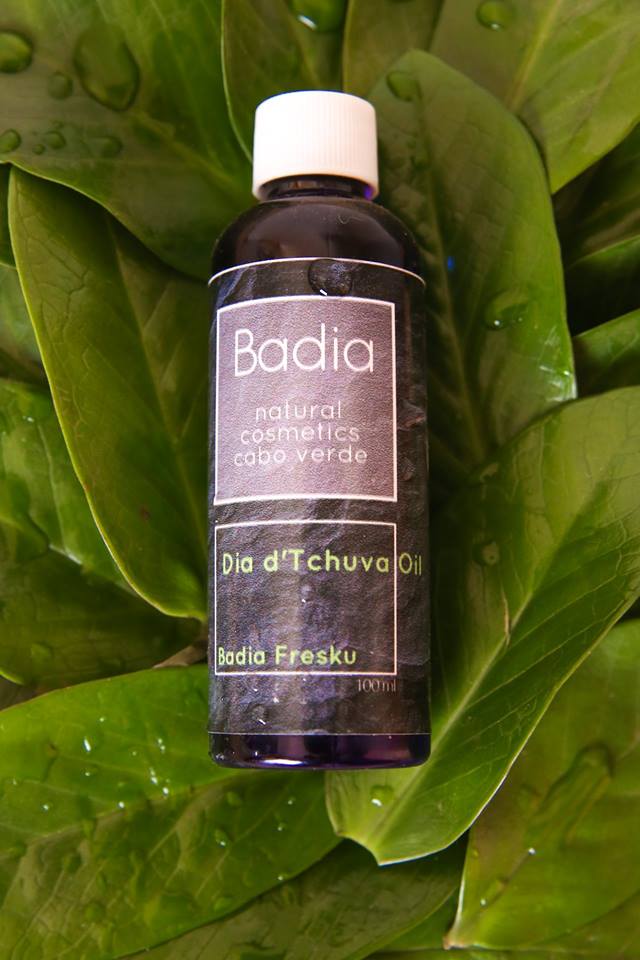
À propos du projet Badia Natural Cosmetics, Lucia a déclaré qu'elle continuerait à développer et à développer la marque de produits naturels. «L’objectif est d’autonomiser les femmes économiquement, mais aussi de stimuler une production locale, artisanale, créative et une nouvelle vision sur la façon d’utiliser nos plantes, en retrouvant les connaissances traditionnelles en phytothérapie. Tout cela, en sensibilisant davantage à la préservation de notre richesse environnementale et en encourageant une production et une consommation plus durables. ”
Badia est une entreprise verte et sociale entreprise qui produit des produits cosmétiques gourmet, bio et artisanal, tout en habilitant les femmes et leurs communautés. Badia est le nom de femme de l'île de Santiago et la marque et les images représenter la résilience de Femme capverdienne à travers de la caractéristique des roches volcaniques du Cap Vert. C'est un hommage au courageux les femmes qui travaillent et prospèrent dans le dur mais beau environnement volcanique de Iles Et c'est aussi une référence à la fondatrice, Lúcia Cardoso, une vrai Badia qui a créé le marque pour répondre aux besoins de La peau sensible de sa fille.
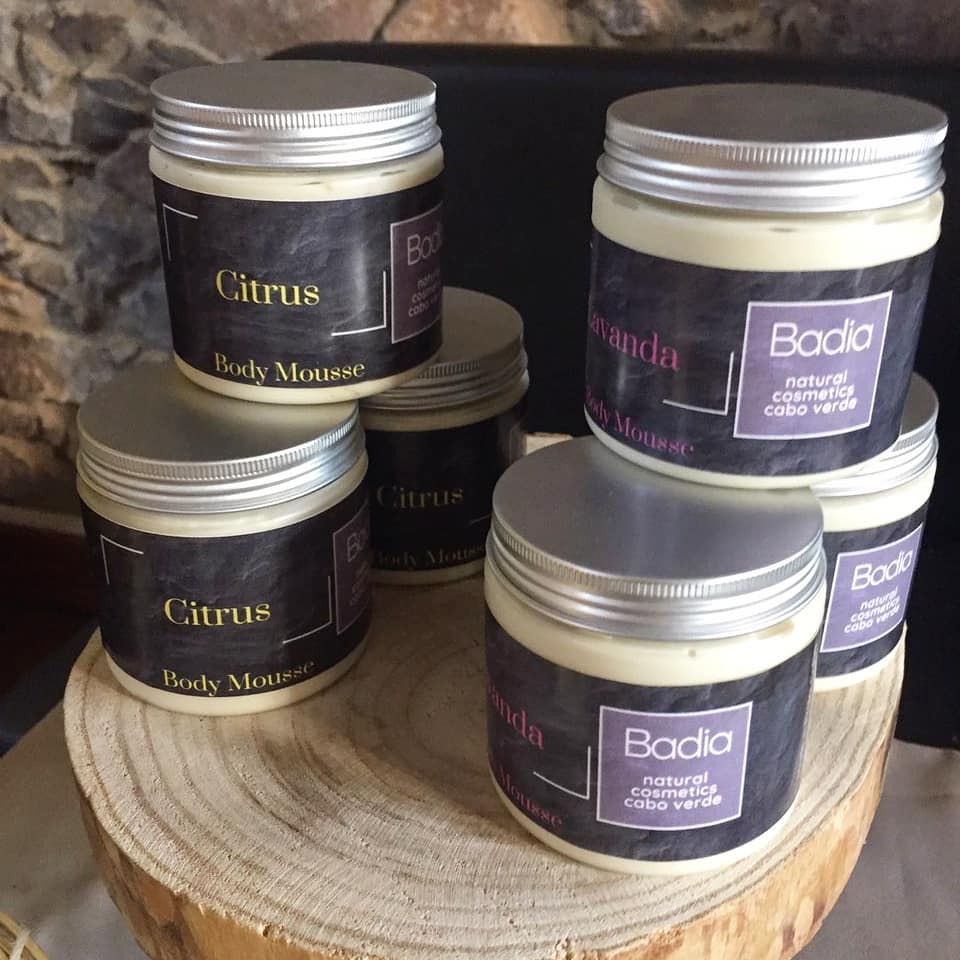
En tant qu’entreprise appartenant à une femme, à un artiste ou à une activiste, Badia a pour objectif de promouvoir la culture et les ingrédients locaux (tels que l’aloe vera, le cactus, le tamarin, la mélasse de canne à sucre, les feuilles de bananier, la mer volcanique, le sel, les cendres volcaniques, etc.) en les transformant en créatifs. savons, huiles et crèmes pour le soin de la peau.
Pensant spécialement aux peaux sensibles, sèches et sujettes aux allergies, nos savons ont des niveaux élevés de propriétés qui hydratent et protègent la peau. Chaque produit a sa propre identité et porte souvent le nom d’un paysage capverdien marque ou icône culturelle ou chanson telle que Sodade, Miss Perfumado, Monte Verde, Désert de Viana, Burcan, etc. comme une invitation à découvrir le Cap Vert, ses paysages, ses saveurs et son merveilleux la musique.
Badia contribue au développement de la communauté en formant des femmes (et des groupes fragiles)et les aider à créer leurs propres marques et petites entreprises, en utilisant les ressources locales et anciens remèdes à base de plantes avec une touche moderne.
Modèle d'affaires:
(1) B2C: vente à Badia Atelier et en ligne.
(2) B2B: fourniture de produits finis aux magasins, aux spas et aux hôtels, fourniture de matières premières à d’autres
sociétés de production
(3) Services de spa: utilisation de produits dans des traitements de spa (forfait d’un an)
4) Cours: formation à des cours et à des ateliers professionnels (en cours d’application)
Population cible:
- population générale avec des produits segmentés (lignes enfants, femmes et hommes)
- Touristes
- Instituts de beauté, hôtels et spas
Personnel: Badia emploie actuellement 5 femmes chefs de famille monoparentaux
Produits
Baumes à lèvres
- gommages au sel
- Masques faciaux
- des savons
- huiles parfumées
- Sérum anti-rides
- Parfum sur mesure
- toniques pour le visage
- Crèmes pour le corps
Nous prévoyons de nous développer et dans 1-3 ans engagés dans:
- Production de tisanes
- Extraction de gel d'aloe vera
- extraction d'huiles végétales et
huiles essentielles
Links
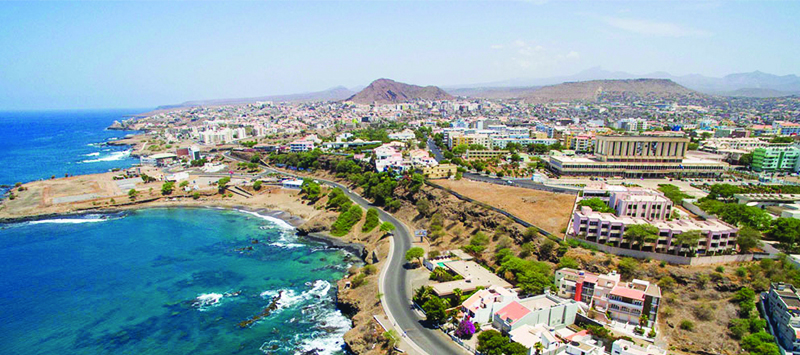
HOW TO CONTINUE TO BE A POVERTY REDUCTION CHAMPION: OVERCOMING THE CHALLENGES OF CAPE VERDE
CAPE VERDE - POVERTY REDUCTION CHAMPION





